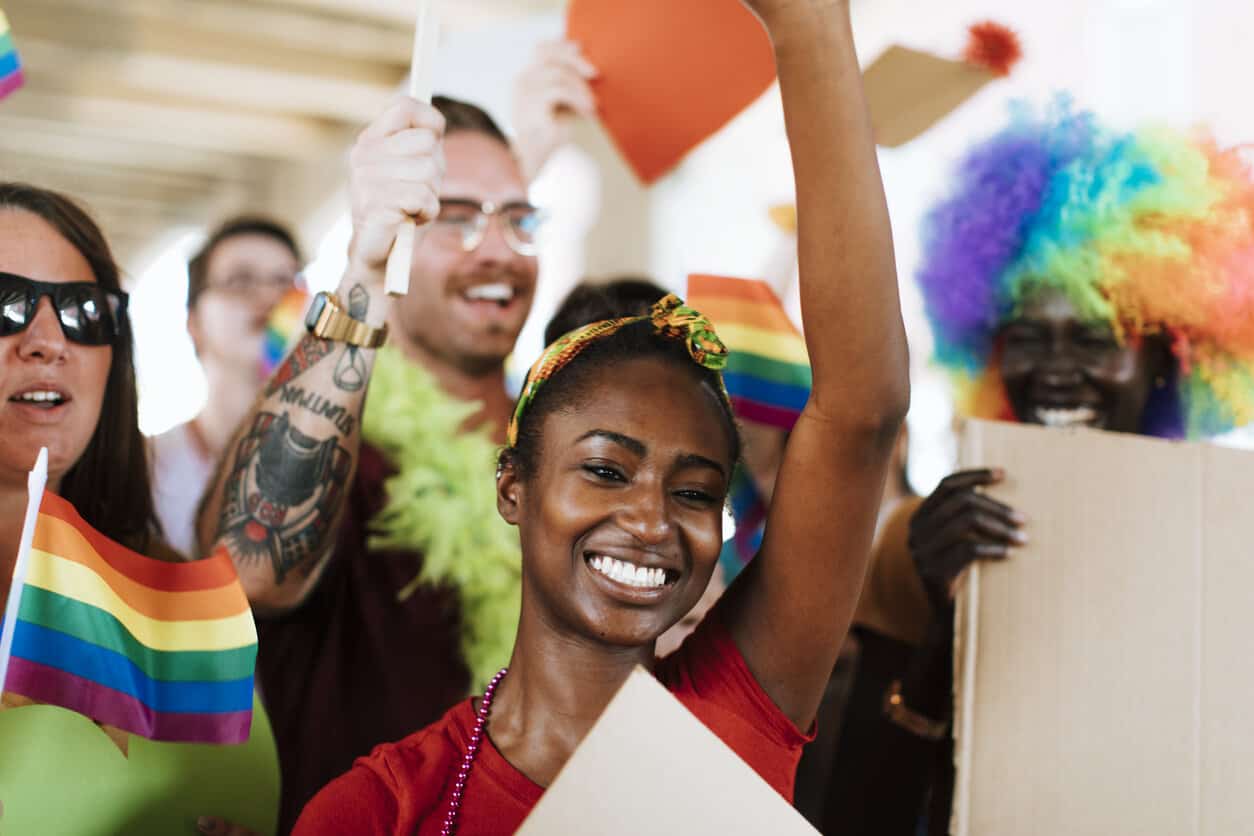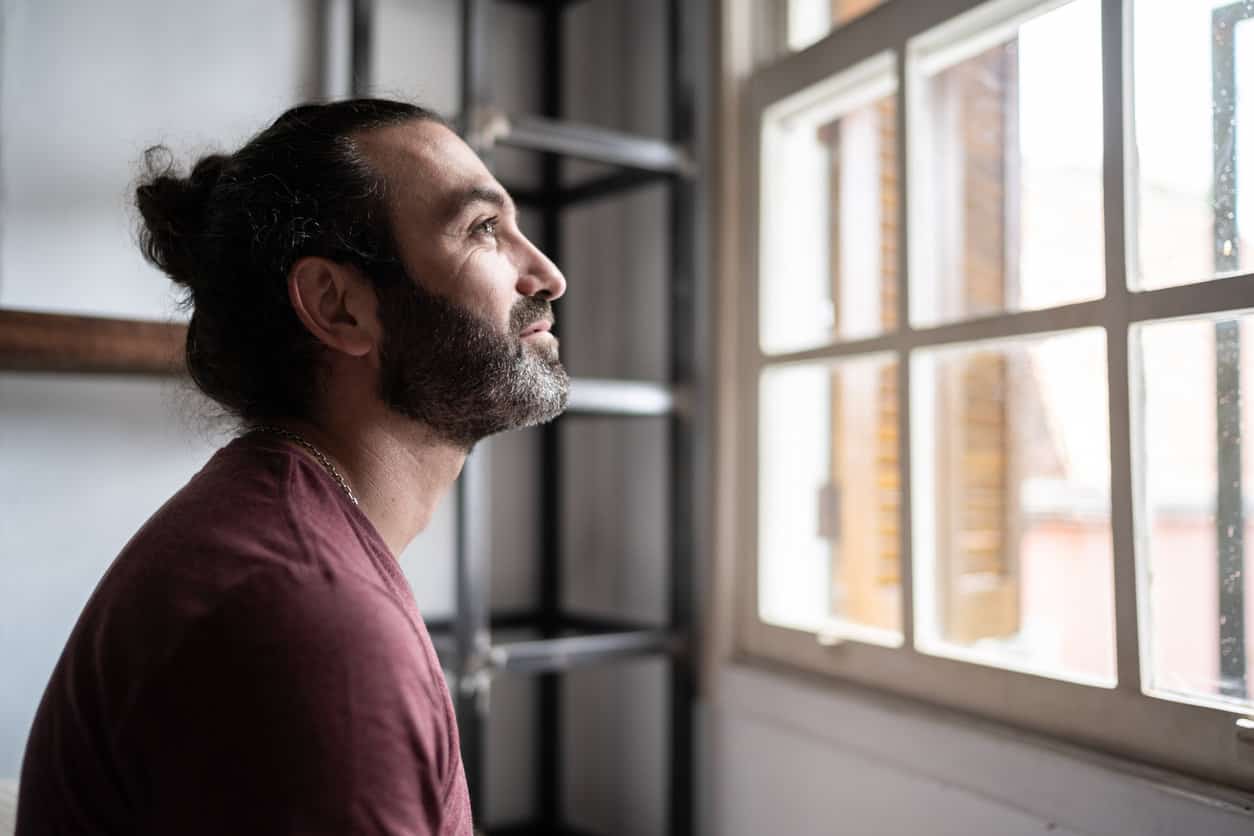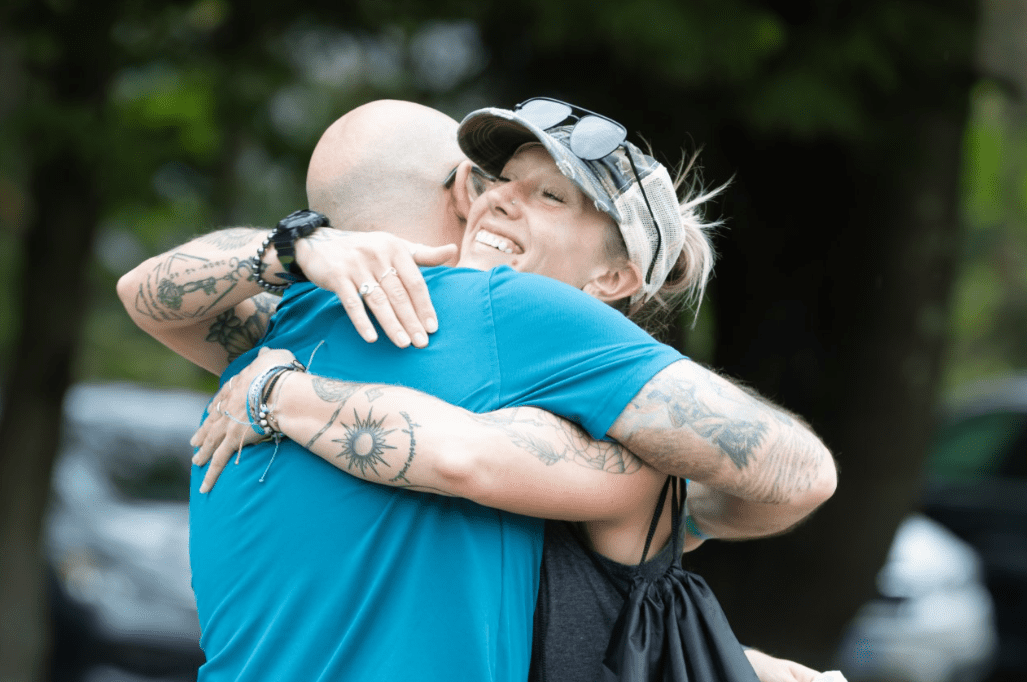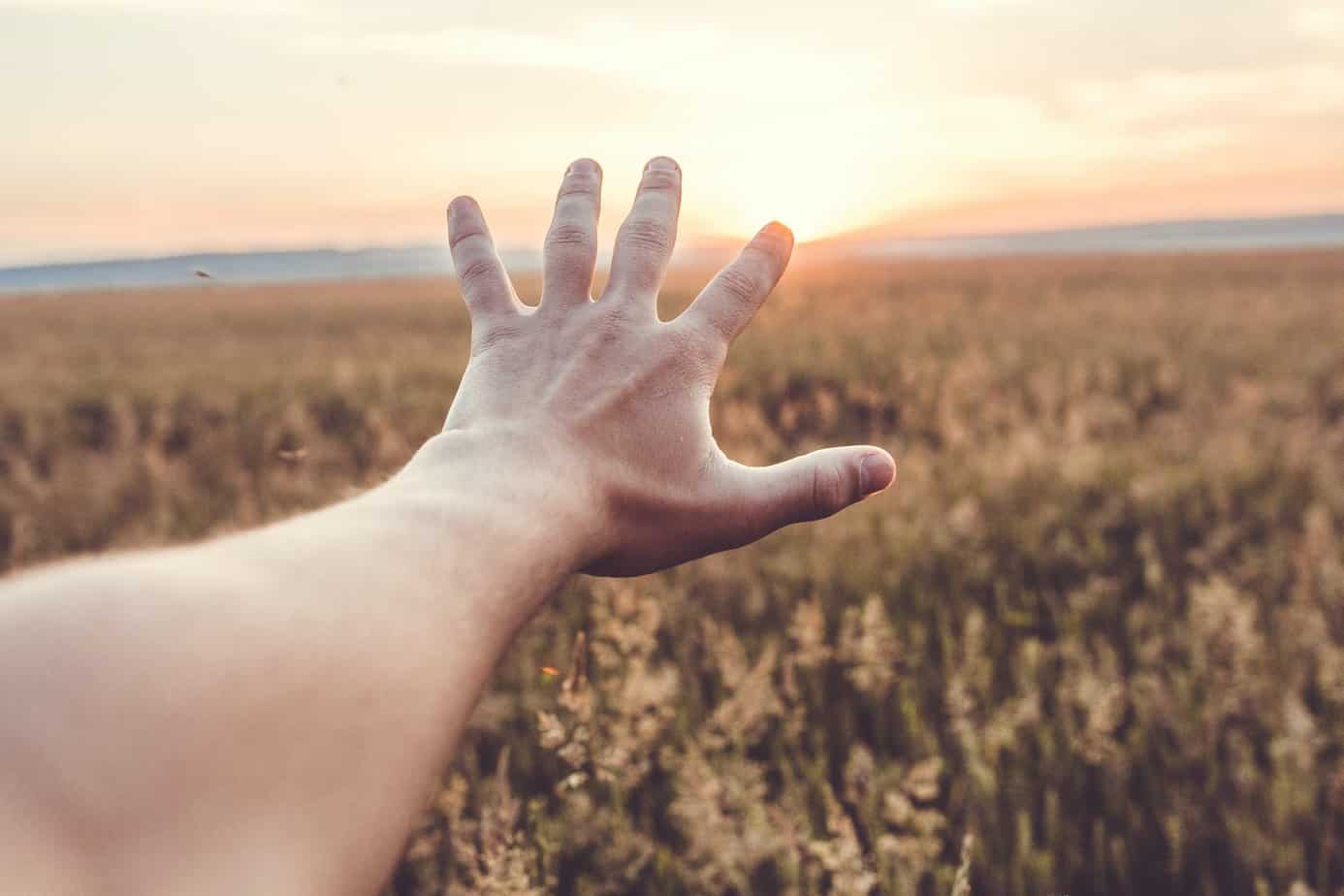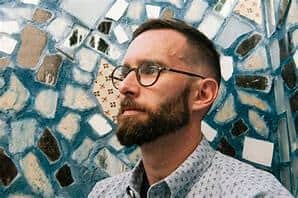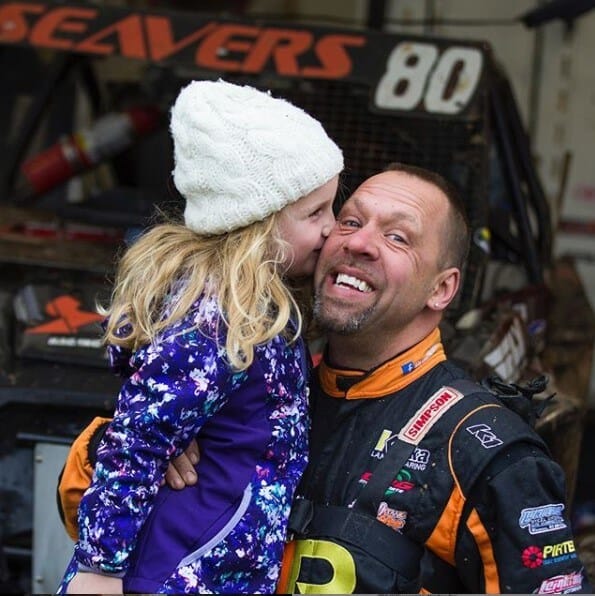Hayley came to Mountainside after a judge and her parents gave her an ultimatum. Now, she’s happy, healthy, and her relationship with her family is stronger than ever. In this month’s Spotlight, learn more about how honesty has played a huge role in her recovery.
Q: What excites you the most when you get up in the morning?
A: Over the past year, I’ve developed a serious appetite for food. I’m not even kidding when I say that the reason I’m motivated to get out of bed in the morning is to go on my daily Honey Dew Donut run or Dunkin Donuts run – depending on how I’m feeling that day. Every day my body wakes me up anywhere between six and six thirty in the morning, and honestly, it’s one of the best parts of my day. I’ll be damned if I should have to wait any longer to eat! Right when I wake up, I hop out of bed and head to my happy place. It’s the drive-thru, obviously, because I usually wear whatever I wore to bed…which typically includes no shoes!
Q: What has been the best part of recovery for you? Why?
A: Recovery allowed me to recreate myself. Not only have I worked on myself, but I’ve also focused on figuring out what I like and what I dislike. I have rid myself of all the negative things in my life and only surround myself with positivity. Recovery opened my eyes, and made me realize that I have almost full control over my happiness, and if I don’t like something or something’s not adding to my happiness, then I can say “screw it!” This has included not only negative things and influences, but also negative friends and relationships. The best part about recovery is that it has made me start living life with clear eyes and an open mind.
Q: What would you say is the biggest success – professional or personal – you’ve had since leaving Mountainside?
A: This may sound strange, but I’ve learned how to tell what people’s true intentions are. I’ve had to cut off almost all my friends, and I’m only 22 years old. It’s sad to say, but mostly all of them, if not all of them, were nothing but negative influences in my life. I refuse to settle for anything less than I deserve, and what I deserve is to be surrounded by positive people who have my best intentions at heart. Hence, why my Mom will always be my best friend, my rock, and the person who I’d much rather hang out with and talk with than any of the people my age. As of right now, my generation hasn’t given me any reason to think otherwise, but I couldn’t be happier.
Q: What has been your biggest hurdle in recovery and how did you learn to overcome it?
A: While my biggest success has been ridding myself of all my negative friendships and influences, this has also been one of my biggest hurdles. As humans, we are creatures of habit, and we like to go back to what we know. Each friend that I cut off challenged my strength as an individual and as a recovering addict. Each person has tried multiple times to wiggle their way back into my life somehow. With time, it’s become much easier to just cut them off completely, with no guilt or second thoughts about my initial decision. I’ve learned that most of the time, my initial gut feeling about the person being negative was right.
At first, I felt bad about up and leaving my friends. I decided to give a few of them a second chance, but it’s true when they say that “misery loves company.” My “friends” turned out not to be my friends at all. In fact, they were quite the opposite of what you would define as “friends.” In the end, my biggest hurdle led to my biggest success, and has helped me grow in more ways than I ever thought was possible.
Q: What was the turning point that led you to get help?
A: When I was sitting in a court room, simply because I could not finish 20 hours of community service in the time I had been given to complete it. The judge said, “you can either go to this very nice, private rehab that your parents have worked very hard to pick out for you, or I can send you to the state rehab facility. The same one where I just sent a 55-year-old alcoholic for the ninth time.”
No surprise there, I chose to go to Mountainside. This wasn’t my turning point though, my emotional turning point occurred when I got home from court that day. My dad called me into his office and showed me Mountainside’s website and explained everything to me for about an hour. While doing this, I saw a side of him that I’d never seen before. After an hour of talking to me about Mountainside, he turned to me with tears in his eyes, and he said “Hayley, please make the decision to go here and get some help.” That’s all he said, and that’s all he had to say. I’d never seen my dad cry before, not even once. He is, hands down, the most stoic man that I have ever met. Later that day, my parents brought me to the hospital to start detoxing there, and for the first time since I had started using, I truly had no desire to try to fight what was happening. That, compiled together, was my turning point.
Q: If you could, what would you tell your younger self?
A: Don’t ever try to change yourself to impress other people. Live for yourself, and never let anyone come before the friends & family that you love and care most about. Oh, I’d also like to tell my younger, defiant lil’ brat of a self, to always remember that your mom comes before any one of your friends, no matter what. She’s not trying to ruin your plans, or your fun, or your life. She’s the only one who’s looking out for your safety and for you in general, in every way, shape, and form.
When I was younger, I was constantly putting my friends before my family. I listened to what they said over what my parents said. Who knew a bunch of naïve, teenage girls had no clue what they were talking about!? Since the day I got clean, I have sworn to always listen to my mom, especially when I need advice. She has an answer and solution for absolutely anything and everything. I swear to God, she’s like a walking encyclopedia. Finally, she’s also the only person who will always be completely honest with me, even when I don’t want to hear the truth.
Q: What would you like people who are afraid to receive treatment to know?
A: You cannot do it alone. I don’t know if every addict has felt this way, but I can say personally, that as my addiction grew so did my knowledge about the fact that it was getting worse. If I could have a penny for all the times that I thought to myself, “this is the last time, tomorrow I’m going to get help.” Fact of the matter is, I’d wake up sick from withdrawals the next morning. At this point, the last thing on my mind was getting help. The only thing on my mind was getting high. The same cycle would have continued if I didn’t have my two very loving and supportive parents, who were willing to stop at nothing to get me help. Someone must intervene, addiction is stronger than any man or any woman. A single person cannot beat or treat their own active addiction. It takes at least one other person to find the person treatment, and to get them admitted into treatment. The number of people who get involved in a person’s treatment after they enter treatment usually grows from that point on.
Q: What suggestions do you have for the newcomer?
A: Listen to your gut, especially during the first stages of recovery. If you don’t feel that you’re ready to leave a residential program, then don’t. Stay! Make sure that you have a recovery plan that works best for you. That makes you most comfortable. Also, ask as many questions and try as many new things as you can – this is most important in the beginning. That’s the entire point of detox and residential programs. They’re there to teach you about recovery and your options. They’re the people who you can ask and talk to about anything and everything without feeling guilty or ashamed. They want to help in any way that makes your recovery easier. And the best part is that most of them have had some encounter with substance abuse, so they truly understand how you’re feeling. Just one more thing, stay honest with yourself and the people who are helping you.
Don’t try to rush the process, you’ll know when you’re ready for the next stage of recovery. The worst thing to do is to try and rush through the programs to just get them over with. The whole point of the program is to prepare you for the next stage of the recovery process, which typically has less structure and rules. It’s your choice from the day you’re admitted into detox. You can choose to take the program seriously, or you can choose to focus on everything but your recovery. The latter will most likely cause a person to either not complete the entire program at all, or to complete the program unsuccessfully.
Some of these people go onto stage two, living in a sober house or attending an I.O.P, but again, they do this without being truly ready. Eventually their dishonesty in their recovery will surface. Whether that be days after stage one or years down the line. The point is, honesty is important from day one. If you can get through the toughest part, entering treatment, you owe it to yourself to be brutally honest in your recovery. Honesty is crucial. Plus, lying is exhausting. I lied about everything when I was actively using, to the point where I was lying about things I didn’t have to lie about. Recovery has reminded me of how simple life can and should be.
Q: What is the best advice you have been given?
A: “Progress, not perfection.”
Q: Who—dead or living—is on the guest list for your ideal dinner party?
A: I’ve found that the only people who I can truly count on for honest advice, support, unconditional love, and constructive criticism are my mom and my sister. These two beautiful people are my motivators and my biggest cheerleaders, sometimes even when I can’t cheer for myself. They truly keep me going and have gotten me through the hard times in life.
Q: What’s the one thing that people would be pleasantly surprised to know about you?
A: I’m three whole minutes older than my identical twin sister Cecily, my ‘sissybug’. Growing up with a twin, lends itself to a lifetime of sharing and companionship. The bond that has been built between me and my ‘buggy’ is one that is deep, self-sustaining, and unfortunately not very well understood by much of the rest of the world. Just imagine learning to touch, laugh, crawl, walk, talk, potty-train, tie your shoes, read, write, dance, survive puberty, discover love, discover heartbreak, learn about the opposite sex—as well as learn to hate specific individuals who are of the opposite sex, and experience virtually all the other growing gains and pains, with someone who is the same age and who has been there with you literally since day one.
Imagine always having your very own built-in best friend by your side. Imagine never being alone. Naturally, we’ve had misunderstandings, but five minutes later I’m making faces at her from across the room like a five-year-old. After ten minutes, we can’t even remember what we were arguing about. The only sounds in the room range from our voices quoting Brendan and Dale from the movie Step Brothers to our voices belting out lyrics from different songs. Fast forward about ten or twenty years and I imagine we’ll still be acting like crazy kids as we try to raise our own crazy kids!
If you or a loved one is struggling with addiction, Mountainside can help.
Click here or call (888) 833-4676 to speak with one of our addiction treatment experts.

 By
By 
